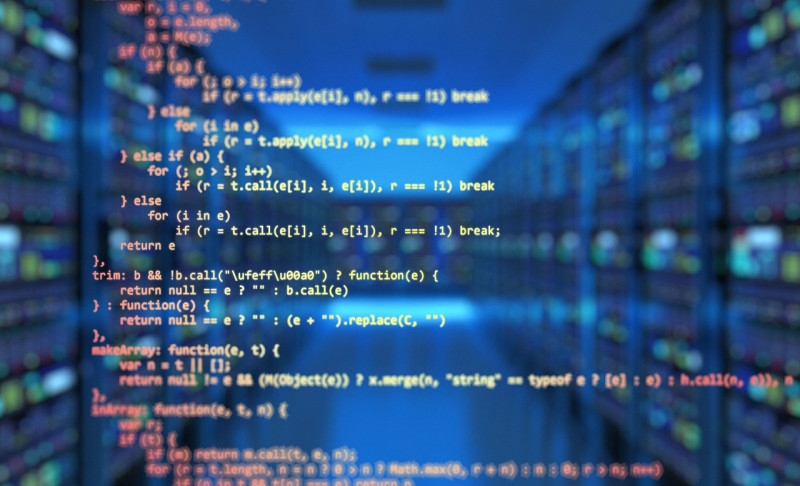
Data Science: Programming with Python
This course offers an introduction into computational thinking about data-related problems and the implementation of data analysis programmes with Python.

This course offers an introduction into computational thinking about data-related problems and the implementation of data analysis programmes with Python.
This course starts at the very basics and is explicitly intended for students who have no or only little programming experience.
Python has become the dominant programming language used in data science. Programming is the process of designing and building an executable computer programme for accomplishing a specific computational task. The course will introduce you to programming with Python, which is currently one of the most popular programming languages in (data) science. After familiarization with the basics (input and output, variables, data types, data structures, conditional branching, loops, functions, etc.) the course will address specific data science topics, such as statistical analyses with the pandas package and data visualization with matplotlib.
Every day, short lectures will be combined with practicals, where students can practice with example datasets that will vary over the course of the week. In the afternoon, students choose to work in small project groups on applying the lessons of the day to a real-life dataset or work on their own individual project and additional exercises. Students will get on-location guidance from the tutors of the course while they are working on their projects.
More details on the day-to-day programme can be found in a separate file. Broadly, the following topics are addressed:
Course credits of 1.5 EC are offered to students who attend meetings every day, actively participate in the exercises and present their (group or individual) project on the last day.
The course will use freely accessible literature that will be made available to course participants during the course. The literature serves both as a practical guide to course materials, and more in-depth reading that can be done during or after the course.
Participants are requested to bring their own laptop. Software will be available online.
Data Science specialisation
This course can be taken separately, but is also part of a series of seven courses in the Summer School Data Science specialisation taught by the department of Methodology & Statistics at Utrecht University:
Upon completing, within five years, three out of seven courses in the Summer School Data Science specialisation), participants can obtain a certificate. Please click here for more information about the full specialization.
Dr. Anastasia Giachanou, dr. Pablo Mosteiro
The course requires no specific previous knowledge, in particular no prior programming skills. You will need to bring your own laptop to do the exercises. Any operating system (Windows, Mac OSX, Linux) is fine, as long as new software can be installed on the machine. We assume that you have elemental computer skills such as browser usage, storing files, installing programmes, etc..
There are no restrictions on who can participate beyond the prerequisites; academics, researchers, and professional participants are all welcome to register for the course.
For an overview of all our summer school courses offered by the Department of Methodology & Statistics please click here.
We also offer tailor-made M&S courses and in-house M&S training. If you want to look at the possibilities, please contact Dr. Laurence Frank at pe.dsai@uu.nl.
After finishing the course successfully, you will be able to:
During the course, participants will get on-location expertise and advice regarding how to address their programming challenges and how to further develop their programming skills.
The course runs for five full days, typically starting at 9:00 and ending at 17:00. Each day includes breaks for coffee and tea, lunch, as well as drinks and snacks.
Please note that there are no graded activities included in this course. Therefore, we are not able to provide students with a transcript of grades. You will obtain a certificate upon completion of this course.
This course has the following fee options, depending on your status:
Please make sure to include which price is applicable when registering for this course. This information can be added in the “Comment” field during the registration process.
For PhD students from the FSBS at Utrecht University:
As a PhD student from the Faculty of Social and Behavioural Sciences (FSBS) at Utrecht University, you can attend up to three Winter or Summer School courses funded by the Graduate School of Social and Behavioural Sciences. Of course, you may choose to take as many other courses as you wish at your own expense, using your personal budget.
When registering, please indicate in the “Comment” field that you are a PhD candidate from the FSBS at UU, so that the course fee can be waived.
For students who take this course as a prerequisite for entering the Master ‘Applied Data Science’, we offer a course discount of € 200. If you are an ADS student, please mention this in your application so we can charge you the reduced fee.
There are no scholarships available for this course.
The housing costs do not include a Utrecht Summer School sleeping bag. This is a separate product on the invoice. If you wish to bring your own bedding, please deselect or remove the sleeping bag from your order.
Please include some details on your programming experience in your motivation.